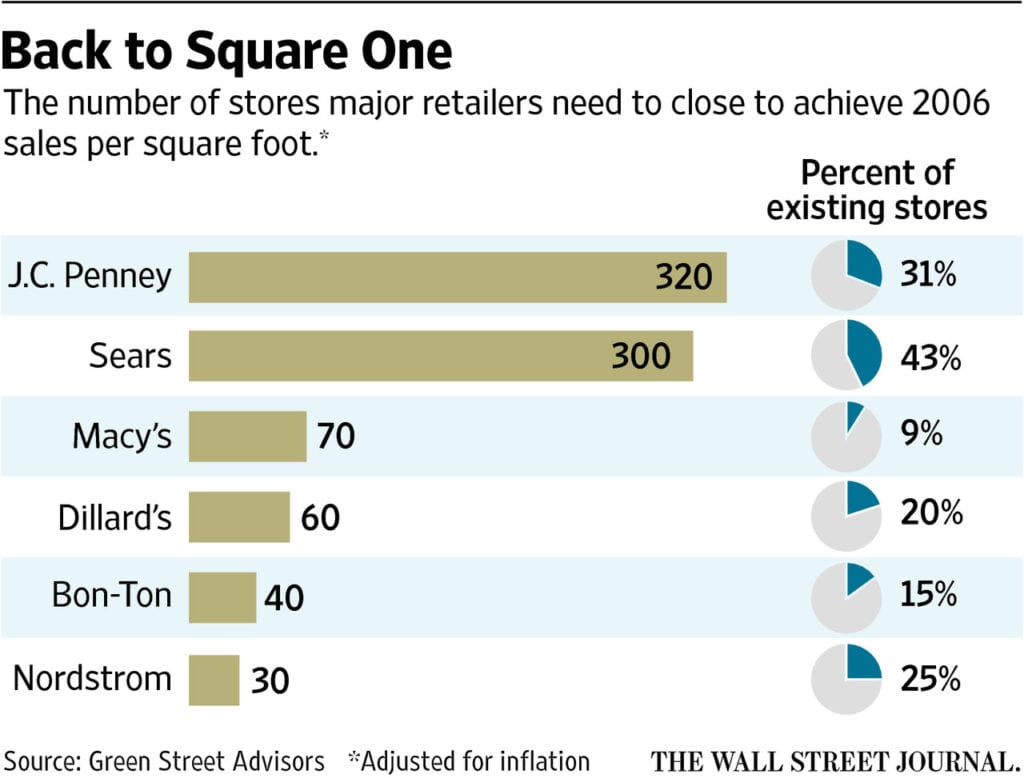According to new research by Green Street Advisors, department stores need to close hundreds of locations to recapture the level of productivity they had a decade ago in 2006. The real-estate research firm estimates that approximately a fifth of all anchor space in U.S. malls, or roughly 800 stores, could be a part of the closures.

As retail business has shifted to discounters or online merchants like Amazon.com in recent years, many large retailers have closed locations. Sears recently said it would close 78 stores including 68 Kmarts this summer as part of a plan that was announced in February. But according to Green Street, Sear would need to close 300 or 43% of its stores to regain the sales per square foot that it had in 2006.
To return to 2006 productivity levels, Green Street estimates that JC Penney would need to close 320 stores (31%), Nordstrom Inc. would need to close 30 stores (25%) and Macy’s, which closed 40 stores last year, would need eliminate an additional 70 stores (9%).
Sales at U.S. department stores averaged $165 per square foot in 2015 which represents a 24% drop since 2006. But stores only reduced their physical footprint by a total of 7% over the same time period.
“Department stores used to be a great catchall for different brands, but today many of the brands have stores of their own, and shoppers can also find them online,” said DJ Busch, a senior Green Street analyst.
The stores have declined to comment on the Green Street Report, but have indicated that closing a large number of stores isn’t the right strategy to improve productivity in today’s dynamic retail market.
“There’s a misperception out there that when we close a store, that business transfers online,” Ed Record, Penney’s chief financial officer, told analysts in November. “When we close a store, particularly in a small market, we see our dot-com business go down.”
Macy’s has attempted to lure shoppers into their stores by adding Bluemercury beauty shops and Backstage discount stores to it’s department stores, and a spokesman for Nordstrom said that all of its stores are profitable, and closing stores “is not our normal practice.”
Source: The Wall Street Journal


